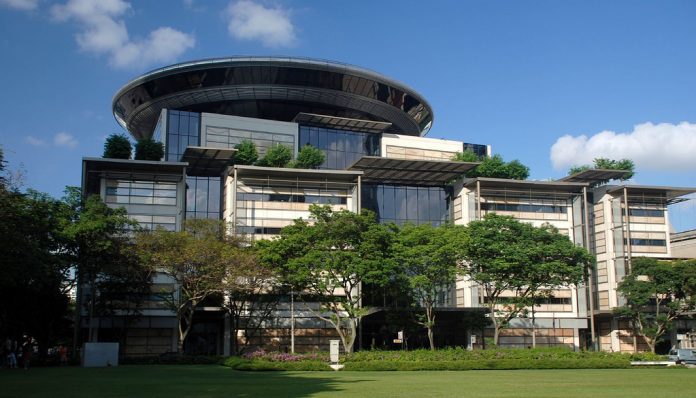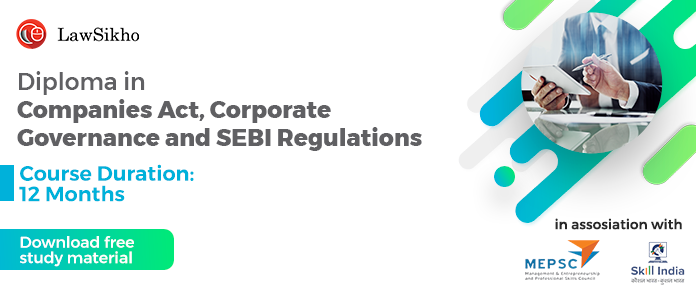This article is written by Sagar Narendrakumar Surana pursuing a Diploma in US Corporate Law and Paralegal Studies from Lawsikho.
This article has been published by Sneha Mahawar.
Table of Contents
Introduction
The President appoints the Chief Justice, who is a high-ranking member of the Judiciary. The Judiciary is responsible for the Supreme Court and subordinate courts. The Supreme Court is composed of the Court of Appeal and High Court and oversees civil and criminal matters. Subordinate Courts include District Courts, Magistrates Courts, Juvenile Courts, Coroners’ Court, and Small Claims Tribunals. The Chief District Judge is accountable for each subordinate court. When bringing a lawsuit or responding to one, it is imperative to go to the appropriate court.
Structure of the courts
The Singapore Judiciary is made up of the following courts:
| Supreme Court | Hears civil cases and criminal cases. Consists of the: ● Court of Appeal ● High Court ○ General Division ○ Appellate Division ○ Singapore International Commercial Court |
| State Courts | Hears civil cases and criminal cases Consists of the: ● District Courts ● Magistrates’ Courts ● Coroners’ Courts ● Small Claims Tribunals ● Community Disputes Resolution Tribunals ● Employment Claims Tribunals |
The Supreme Court is a part of Singapore’s legal system that ensures everyone’s access to justice. It may handle both civil and criminal matters.
Types of courts in the Supreme Court
The Supreme Court is made up of the following courts:
● Court of Appeal.
● High Court.
○ Appellate Division of the High Court.
○ General Division of the High Court.
■ Singapore International Commercial Court (SICC).
Jurisdiction: what the courts can hear
The courts within the Supreme Court deal with the following types of cases:
| Court of Appeal | ● Appeals from criminal cases where the General Division had initial criminal jurisdiction. ● Civil appeals that fall within certain legal categories and appeals filed pursuant to statutory law are heard by the Court of Appeal. The Sixth Schedule to the Supreme Court Judicature Act outlines the types of civil appeals that must be filed in that court. |
| Appellate Division of the High Court | ● The Sixth Schedule to the Supreme Court of Judicature Act lists the types of civil appeals that are to be addressed by the Supreme Court. ● The Appellate Division has jurisdiction over all civil appeals and procedures established by statute or other written legislation. ● It cannot hear appeals from criminal cases and does not have criminal authority. |
| General Division of the High Court | The General Division hears both criminal and civil matters, including those involving: all criminal offences committed in Singapore, including: ● Those carrying the death penalty or a jail sentence exceeding 10 years. ● Disputes in the civil arena when the amount in dispute is more than $250,000. Disputes that must be submitted to the General Division include: ● Legal issues with the Admiralty. ● Processes connected to the insolvency of a company. ● Bankruptcy filings. ● Application to work as an advocate or solicitor. Topics include appeals and other issues such as: ● Appeals from State Courts (District Courts and Magistrates’ Courts) in criminal and civil matters. ● Tribunal appeals. ● Decisions of state criminal courts that are subject to review. ● Cases covered by the listings of specialists. |
| Singapore International Commercial Court (SICC) | International commercial disputes, such as: ● Claims of a global and commercial character in line with the provisions of Section 18D(1) of the Supreme Court of Judicature Act. ● Arbitration cases involving foreign businesses that fall within the purview of Section 18D(2) of the Supreme Court Judicature Act. The Special Immigration & Criminal Court (SICC) is an alternative court where cases may either be filed or moved from the General Division. |
Functions and framework of State Courts
The State Courts are one branch of Singapore’s judicial system that enforces the law and guarantees everyone’s access to justice. It may hear cases in both criminal and civil domains.
Each year, the State Courts in Singapore hear over 98% of all criminal cases and 90% of all civil cases.
Different Kinds of State Courts
The State Courts are made up of the following courts and tribunals:
● District Courts.
● Magistrates’ Courts.
● Coroners’ Courts.
● Small Claims Tribunals.
● Community Disputes Resolution Tribunals.
● Employment Claims Tribunals.
Jurisdiction: what the different kinds of State Courts can hear
Cases falling within the jurisdiction of the following State Courts courts and tribunals:
| Criminal cases | Civil cases | |
| District Courts | Crimes where the maximum sentence allowed by law is less than 10 years in jail or when the maximum penalty is a fine only. | In the civil arena, claims between $60,000 and $250,000. (Or up to $500,000 for claims for bodily injury from industrial accidents or road traffic incidents.) |
| Magistrates’ Courts | Infractions where the maximum penalty for conviction is less than five years in jail or if the only penalty imposed is a fine. | The value of the claim does not exceed $60,000. |
| Coroners’ Courts | Investigations into deaths of unknown or suspicious causes are handled by the Coroner’s Courts. | Not applicable. |
| Small Claims Tribunals | Not applicable. | Any disagreement including the following that does not include a claim worth more than $20,000 (or $30,000 with written approval from both parties) ● A binding agreement to exchange goods or services. ● Unfair dealings in the hire-purchase context. ● A wrong committed against another person’s property. ● A lease agreement for residential property with a term of no more than 2 years ● Representations covered by certain laws. |
| Community Disputes Resolution Tribunals | Not applicable. | Claims not to exceed $20,000 for conflicts between neighbours over unlawful intrusions into the use or enjoyment of a home. |
| Employment Claims Tribunals | Not applicable. | Disputes between employers and workers over wage or wrongful termination with claims not exceeding $20,000 in value (or $30,000 for tripartite-mediated disputes). |
Specialized District Courts and Magistrates’ Courts
There are specialized District Courts and Magistrates’ Courts as well as regular ones.
There’s the Protection from Harassment Court, the Traffic Court, the Night Court, and the Criminal Mentions Court.
Dispute Resolution Channels for businesses
It is wise to factor in the time and money needed to prepare for and navigate the legal system before making any hasty decisions about whether to go to court. These days, arbitration and mediation have replaced most court cases involving commercial disagreements.
Mediation
To facilitate peaceful conflict resolution, the Singapore Mediation Centre (SMC) chooses and educates a group of impartial mediators. Mediators are respected members of the legal or other professional communities who, with the aid of counsel for both sides, facilitate settlement talks between the disputing parties. The mediator’s role is to facilitate the parties’ decision-making process rather than to substitute his own judgement for that of the parties. It has been stated that the SMC has resulted in considerable cost and time savings since 90% of resolved cases are settled within one working day. Starting at 900 SGD per party each day, the mediator’s cost is negotiable. When discussions have stalled, the SMC will perform an impartial review (the unbiased judgement of a seasoned professional in the field).
● The Ministry of Manpower’s Labour Relations Division facilitates the peaceful resolution of labour disputes via mediation between employers and workers.
● When a customer has a problem with a company, they may go to the Mediation Centre of the Consumers Association of Singapore (CASE).
● The Alternative Dispute Resolution programme was established by the Singapore Subordinate Courts so that anyone involved in an online business transaction may settle their differences without having to go to court physically. Consumer and contractual disputes, as well as intellectual property rights violations, may arise between companies (B2B), customers (C2C), or both (B2C, C2B).
● To help customers settle issues with financial institutions in a cost-effective, easily accessible, unbiased, and independent manner, the industry has established the Financial Industry Disputes Resolution Centre (FIDREC).
● Real estate and building disputes may be settled via mediation services provided by the Singapore Institute of Surveyors and Valuers (SISV).
● With the use of online mediation, impartial assessment, e-settlement, and the Singapore Domain Name Dispute Resolution Service, DisputeManager.com is a website that facilitates the resolution of legal issues (SDRP). Cases may be filed and parties can schedule online meetings through video or text chat.
Arbitration
Arbitration, in contrast to mediation, may have binding legal consequences. It is very much like going to court, except that it is not held in a courtroom and is closed to the public. There will be no agreement between the parties and the arbitrator; the arbitrator will decide the case on his own. In Singapore, arbitration proceedings are handled by the Singapore International Arbitration Centre (SIAC). Almost any civil case may be settled by the SIAC; however, criminal and family law cases are beyond their scope. Awards made in arbitration proceedings are recognised and enforced in over 120 jurisdictions worldwide according to the New York Convention. Administration costs, arbitrator fees, and attorney fees are all part of the arbitration cost, with the total amount due varying with the value of the case and the arbitrators’ level of experience. When it comes to resolving disputes, parties may either use the SIAC’s panel of over 190 legal and industrial experts, or they can choose their own.
● When it comes to maritime issues, the Singapore Chamber of Maritime Arbitration (SCMA) provides a credible and efficient arbitration service.
● The parties might use the mediation phase of the Law Society Mediation/Arbitration Scheme to try to reach a cost settlement.
Resolving Disputes through the court system
When a business disagreement arises, it is often tried in the Civil Courts. Depending on the size and kind of your claim, you may file it with the High Court, District Court, Magistrates’ Court, or Small Claims Tribunal. The Copyright Tribunal and the Labour Court are two examples of specialised Courts.
Copyright tribunal
The Copyright Tribunal mediates conflicts between content creators and those who exploit their work without permission.
Labour court
If a dispute between an employer and an employee cannot be settled via other channels, it might be brought before the Labour Court.
Conclusion
In conclusion, the following are some useful facts to remember about Singapore’s Court Procedures:
● The claimant is referred to as the “Plaintiff.”
● The Defendant is the person or entity who is the subject of the claim or service.
● Suits are filed in the proper Courts depending on the kind and value of the claim.
● The Defendant may negotiate an out-of-court settlement with the Plaintiff or the Plaintiff’s attorney if he chooses not to contest the claim.
● If neither party settles, the court will schedule a hearing to consider the evidence presented by both parties.
● There is still time for an amicable resolution to be reached.
● Once a decision has been taken, it must be followed.
● The Court may issue a warrant of seizure and sale if the parties fail to comply. In this way, the party with the valid claim may take the assets and sell them to pay off his debt.
● An appeal to the High Court may be filed if you disagree with the Court’s decision.
Reference
- https://www.judiciary.gov.sg/who-we-are/about-singapore-courts
- https://sso.agc.gov.sg/Act/SCJA1969?ViewType=Pdf&_=20221117175213
Students of Lawsikho courses regularly produce writing assignments and work on practical exercises as a part of their coursework and develop themselves in real-life practical skills.
LawSikho has created a telegram group for exchanging legal knowledge, referrals, and various opportunities. You can click on this link and join:
Follow us on Instagram and subscribe to our YouTube channel for more amazing legal content.
 Serato DJ Crack 2025Serato DJ PRO Crack
Serato DJ Crack 2025Serato DJ PRO Crack










 Allow notifications
Allow notifications


